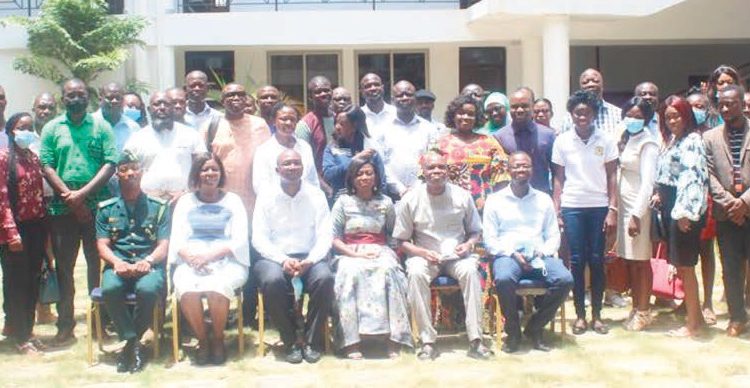A new research by the Center for Migration Studies, (CMS) University of Ghana (UG), has recommended that government supports Ghanaians engaged in mining activities.
According to the China-Ghana Migration Research, undertaken to examine the link between inequality and migration, providing resources to Ghanaians engaged in community mining and traders will ensure that the local people get the best out of the mining resources in the country.
The research, which forms part of the Migration for Development and Equality (MIDEQ) project, highlighted inequalities in resources like investment capital and technical capacity in the mining sector, adding that this situation gives the Chinese investors an upper hand.
“Mining and trade laws create conditions for investments and at the same time the need for ‘fronting’ by Ghanaians.
“The Chinese operate the machine and supervise, and the Ghanaians collect the sand into the machine. The Chinese do not take part in the washing of gold, they just supervise, so that the workers will not steal or run away with it,” said Prof. Joseph Teye, lead researcher and Director at the CMS.
He thus highlighted the government’s Community Mining Programme which is helping to provide mining equipment and reduce the dependence on the Chinese.
Prof. Teye further noted that the Ghana-China corridor is one of the emerging south-south migration corridors, which are characterised by migration flows in both directions.
He indicated that differences in economic opportunities as well as incomes and gender inequalities contribute to migration along the corridor.
“Flows of Chinese migrants to Ghana is associated with some negative impacts – including environmental impact, violation of rights of workers, exploitation of Chinese low skilled migrants by pioneer migrants,” he said.
Prof. Taye, however, noted that despite these negative impacts, there are also positive outcomes in terms of job creation, benefits to business partners in Ghana, including those fronting, revenue generation through taxes, social benefits like marriage, cultural diversity, language, and construction of infrastructure.
Co-researcher, Dr. Mary Setrana said, aside from supporting mining communities, there is the need for social interventions like girl child education, subsidy for farmers, public education on the rights of Ghanaian workers, Chinese workers, responsibilities of Chinese employers, as well as collaboration among stakeholders including the Chinese government, to maximise the mutual benefit of migration.
“There is the need for policy to reduce the negative impact, and harness the benefit of migration along the corridor for socio-economic development in Ghana,” she said.
BY Jamila Akweley Okertchiri

